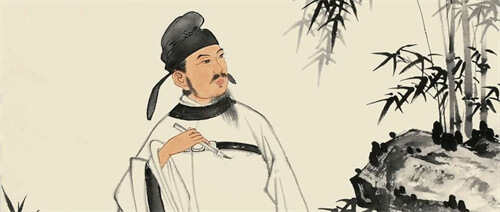 欲与元八卜邻,先有是赠
欲与元八卜邻,先有是赠
平生心迹最相亲,
欲隐墙东[1]不为身。
明月好同三径[2]夜,
绿杨[3]宜作两家春。
每因暂出犹思伴,
岂得安居不择邻?
可独[4]终身数相见,
子孙长作隔墙人。
元八是元稹(元九)的堂兄,是白居易的诗友。公元815年,元八在长安升平坊买了一所新宅,白居易想和他结邻而居,就写了这首诗。前四句说:你我是生平最知心的朋友,都想隐居生活而不谋求自身的功名利禄。既然如此,那我们就结为邻居吧,让明月的清辉共照我们的松径,让绿杨的春色回到我们两家。后四句说:暂时外出,还需要结伴同行,长期定居,怎能不选择邻居?一旦为邻,不但可以时常相见,而且子孙后代也可以和睦相处。这首诗看起来是说理,其实理中有情,写出了殷切而纯真的友谊。
注释:
[1]墙东:指代隐居之地。典故出自《后汉书·逸民传·逢萌》:“君公遭乱独不去,侩牛自隐。时人谓之论曰:‘避世墙东王君公。’”
[2]三径:指代隐居之所。典故出自陶渊明《归去来兮辞》:“三径就荒,松菊犹存”。
[3]绿杨:借用南朝陆慧晓与张融为邻的典故,两家中间有池,池上有绿杨,表示自己愿与元八为邻。
[4]可独:何止,不仅仅。
On Becoming Neighbor of Yuan Eighth
In my life you are the friend nearest to my heart;
I’ll live by your east wall, not to be kept apart.
The moon will shed bright rays on our pine-clad pathways;
Green willows bring to our houses the same spring days.
Even in short outings we need companions good.
How can we not, when long installed, choose neighborhood?
Now we may call on each other from spring to fall;
Our sons will never be separated by the wall.

《欲与元八卜邻先有是赠》是唐代诗人白居易所作的一首七言律诗。诗人驰骋想象,描绘出明月在天、绿柳拂地的两幅画面,抒写他对结邻之后的情景的美丽憧憬,诉说对朋友的极端的渴慕,表现出殷切而纯真的友情。
This poem is a seven-line poem written by Bai Juyi, a poet of the Tang Dynasty. The poet’s imagination is running wild, depicting two images of the bright moon in the sky and the green willow on the ground, expressing his beautiful vision of what will happen after he has formed a relationship with his neighbor, telling of his extreme longing for his friend and showing his sincere and pure friendship.







